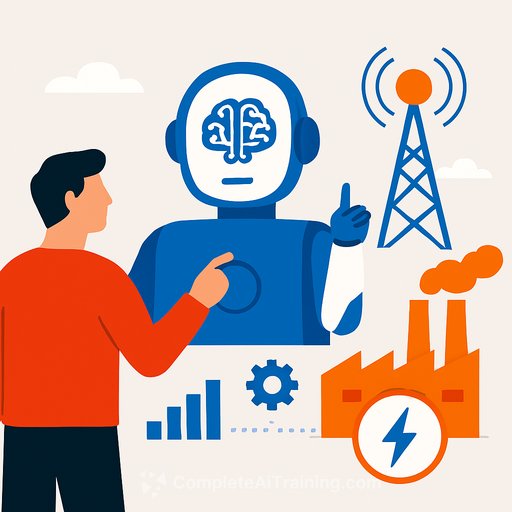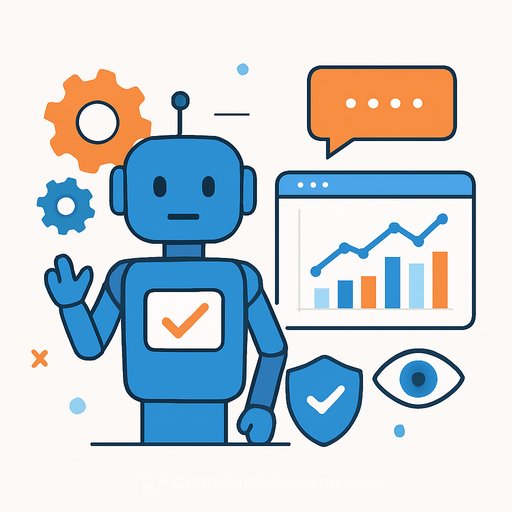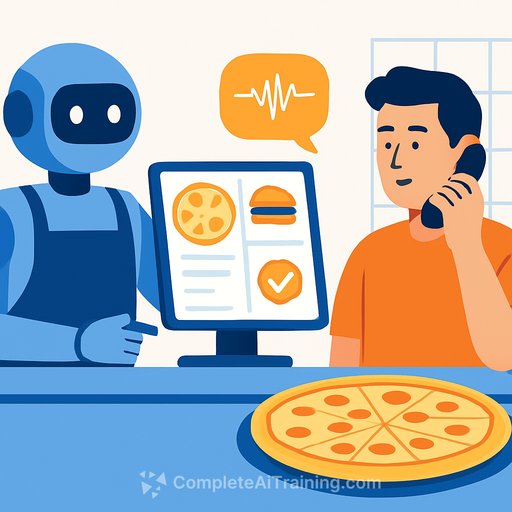Vodafone's AI Fix for the 5G Operations Headache
Managing a 5G network is a major operational challenge. Vodafone, working with Zinkworks, is building a generative AI platform to automate telecom management. The aim is to improve network performance and cut down on energy consumption.
The core problem with complex 5G networks is that the required knowledge is highly specialized and spread across different departments. Building and running applications for the Radio Access Network (RAN) demands a rare mix of radio expertise and advanced software skills. This skills gap slows innovation and increases costs.
Opening Up Network Management
The new platform, called Rapid RIC, is designed to remove this barrier. It allows radio engineers, the people who understand the network best, to build and deploy helpful apps without being coding experts. It democratizes the process.
Rapid RIC combines Vodafone's data intelligence with a simple visual interface and an AI that writes code. Engineers can drag-and-drop components to map out how an app should function. The platform's AI then automatically writes, validates, and assembles the necessary code, bypassing the difficult steps of model training and data handling.
For Vodafone, this massively accelerates development. They estimate they can roll out new and improved 5G network features in just three or four weeks, down from several months. The expected time savings for creating and launching RAN apps (rApps) is between 60-70 percent.
From Speed to Tangible Benefits
This speed translates into real results for the business and its customers. By quickly creating specialized rApps, Vodafone can automate manual tasks. These apps can automatically boost signals where needed, find and fix network issues remotely, and shut down unused network connections to save power.
For customers, the outcome is faster internet, better signals in both busy cities and underserved rural areas, and fewer service interruptions.
Alberto Ripepi, Chief Network Officer at Vodafone, stated: "We are working to simplify and accelerate the deployment of AI-powered applications that directly improve the customer experience. This platform allows us to focus on delivering a stronger, more reliable signal and greater network capacity while meeting our sustainability goals."
How It Works and Stays Safe
The Rapid RIC platform is built for modern, software-driven 5G networks, especially those using Open RAN technology. Open RAN promotes innovation by allowing operators to mix and match hardware and software from different vendors at a single mobile site.
A major concern is putting AI-generated code into a critical national network. To manage this risk, the platform uses an AI simulator to test every app before it goes live. This simulator rapidly validates new rApps and monitors their performance once deployed, ensuring safety without the massive cost of maintaining a full digital twin of the network.
Technically, the platform will run on Vodafone's existing Google Cloud Platform (GCP) data center. This private cloud setup allows Vodafone teams to upload, monitor, and deploy rApps across multiple European markets simultaneously.
Key Lessons for Operations Leaders
Vodafone's approach with Zinkworks shows how AI is being used to automate core business functions. For operations leaders, the practical takeaways are clear:
- Use AI to Fill Skill Gaps. The platform's main advantage is empowering subject matter experts (radio engineers) to solve their own problems without a separate software team. Look for similar bottlenecks in your own organization where specialized knowledge is siloed.
- Focus on Practical Testing. Deploying AI-generated code is risky. Vodafone's AI simulator is a smart way to ensure safety and quality without the expense of a full-scale replica.
- Connect AI to Business Goals. This project is tied to clear results: 60-70% faster development, better customer experience, and energy savings. AI initiatives need to be linked to key metrics to get executive buy-in and prove their worth. Exploring AI for automation can provide a framework for this.
- Build on Existing Infrastructure. The project leverages Vodafone's current GCP data center. Smart AI strategies build on secure, existing cloud platforms rather than requiring entirely new infrastructure from scratch.
Vodafone is essentially creating an 'AI factory' to run its 5G operations. The goal is to turn expert knowledge into automated, scalable software. It represents a shift from simply using AI tools to producing and deploying them at the heart of the business.
Your membership also unlocks:






